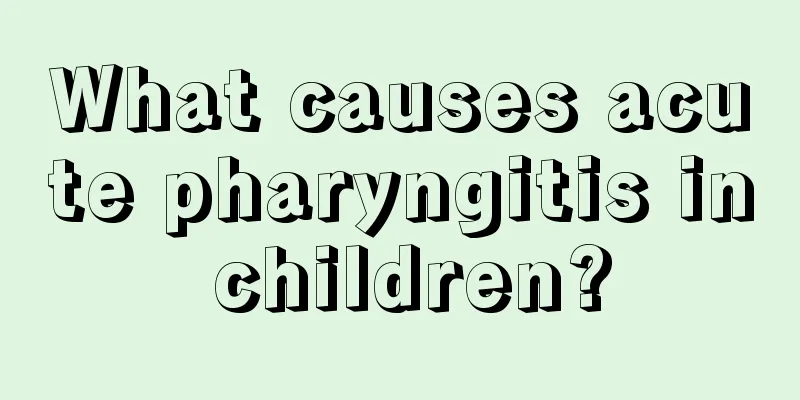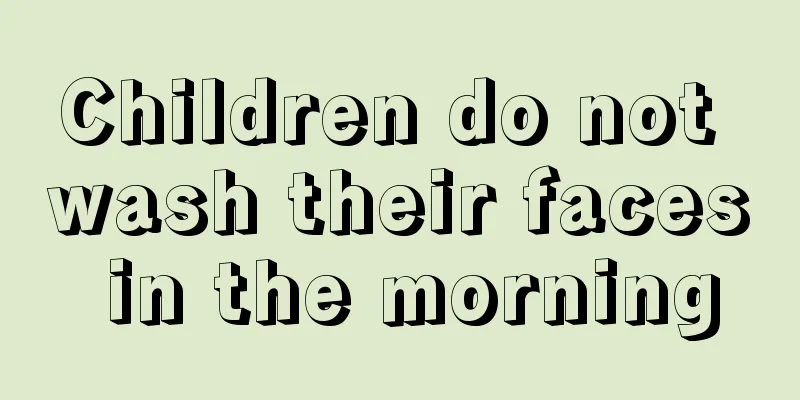What should I do if my baby has horse teeth?

|
When talking about horse teeth, everyone will quickly think of teeth. But let me tell you here that horse teeth are not real teeth. Rather, they are some yellowish-white dots that grow on the baby's mouth when the baby is 4-6 weeks old. Because they look like teeth, they are called milk teeth. Milk teeth are medically called leather beads. When encountering this situation, parents need to do a good job of oral care for their baby. What is horse teethHorse teeth, medically called epithelial beads, are formed by the accumulation of epithelial cells. For most babies, 4-6 weeks after birth, small yellow-white dots appear on both sides of the midline of the upper palate and the edge of the gums, which look like growing teeth. These are milk teeth. Horse teeth are not real teeth. They are not like real teeth in shape, size or structure, and they cannot chew food. The growth of milk teeth in babies is a normal physiological phenomenon, not a disease, and babies generally do not feel any discomfort. However, some babies may like to shake their heads, become irritable, bite nipples, or even refuse to eat. This is caused by local discomfort such as itching and swelling. Milk teeth do not affect the baby's breastfeeding or the development of deciduous teeth. They will generally fall off gradually within a few months after birth. Some babies' milk teeth cannot fall off in time due to malnutrition, which is not a big problem and does not require treatment.
Some parents see their baby growing milk teeth and want to help the baby treat them. They rub and pick at them, which ends up scratching the baby's oral tissue and causing inflammation. In fact, mother's teeth cannot be rubbed or picked. What parents should do is to pay attention to the oral hygiene of the newborn. Never pick them with a needle or rub them with a cloth. This is very dangerous and can easily damage the baby's thin and tender oral mucosa. Normal newborn babies do not need oral care. You only need to wipe the milk stains on the baby's lips, corners of the mouth, and under the jaw after feeding to keep the skin and mucous membranes clean and fresh. If the baby suffers from stomatitis or other oral diseases, oral care is needed.
Generally speaking, newborns do not need oral care. You just need to wipe off the milk stains and saliva and keep the skin and mucous membranes clean. Special care is only needed if your baby has oral diseases. Prepare the following items: Place a treatment bowl in the nursing basket, 6 large cotton balls soaked in saline, 1 bottle of sterilized liquid paraffin oil, or boiled edible vegetable oil, 1 pair of tweezers, 1 pack of cotton swabs, 1 small teapot (with warm water in it), and 2 small towels. Operation steps: Before doing oral care, wash your hands first, place the newborn on its side, and wrap a towel under the chin and on the pillow to prevent the clothes and pillow from getting wet. Use tweezers to hold a saline cotton ball, first wipe the inside of the cheeks and the outside of the gums, then wipe the inside of the gums and the tongue. Replace at least one cotton ball each time you wipe a part. Be careful not to touch the throat to avoid causing nausea. After scrubbing, wipe the face and corners of the mouth with a towel. If the lips are dry, apply paraffin oil or edible vegetable oil, and apply medicine inside the mouth as needed. Mothers should pay attention to the fact that when doing oral care, the items used must be clean and hygienic and must be disinfected before use. Do not dip the cotton ball into too much solution to prevent the baby from inhaling the solution into the respiratory tract. Be gentle when operating and hold the cotton ball tightly to prevent it from falling to the back of the mouth and blocking the throat, causing suffocation. |
<<: What to do if your baby breaks his skin and bleeds
>>: What to do if your child has buck teeth
Recommend
What should I do if my 2-month-old baby has a fever?
Many people ask what to do if a child has a fever...
Can newborns smell floral water?
In summer, we often use floral water, which has a...
Why does my eight-month-old baby have protruding ribs?
If your baby is already eight months old, he or s...
Symptoms of mild hand, foot and mouth disease
Hand, foot and mouth disease can easily affect th...
What should we pay attention to when treating dermatitis in children?
I believe that many parents will encounter dermat...
Why do children suddenly have nosebleeds in summer?
Children rarely have nosebleeds before the age of...
What to do if your baby's eyes itch
The physical health of the baby is what we are co...
What can children eat to grow taller?
I believe that when we were young, we all had thi...
The child hit his head and got a big bump
It is actually a very common problem for children...
The child is four years old and has red bloodshot eyes
Children are the treasures of their parents. Ever...
Parents should remember the difference between children with cerebral palsy and normal children!
Cerebral palsy is troubling many families. It is ...
How to improve children's memory
Nowadays, competition in society is becoming more...
Why can't children drink honey?
Honey is a familiar food that has great benefits ...
At what age should children be weaned?
During infancy, children's main food is the m...
Pay attention to the nutritional balance of the diet for children in the third year of junior high school
Children in the third year of junior high school ...









